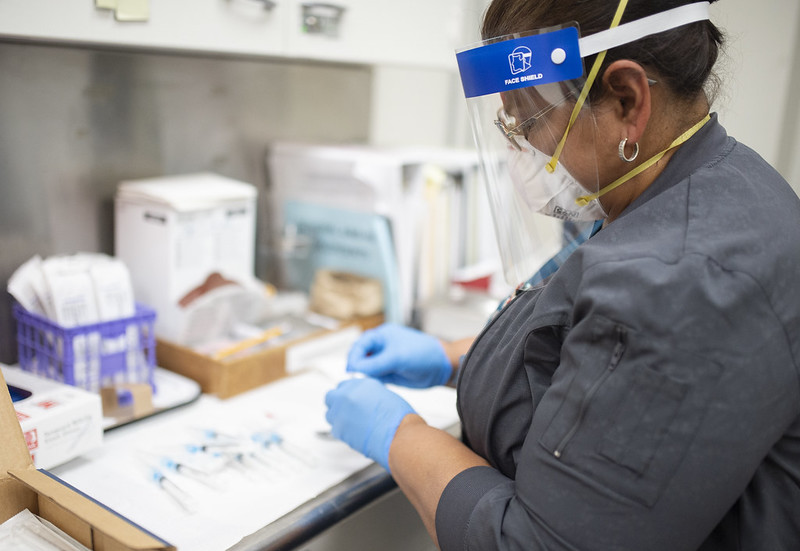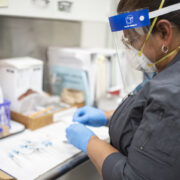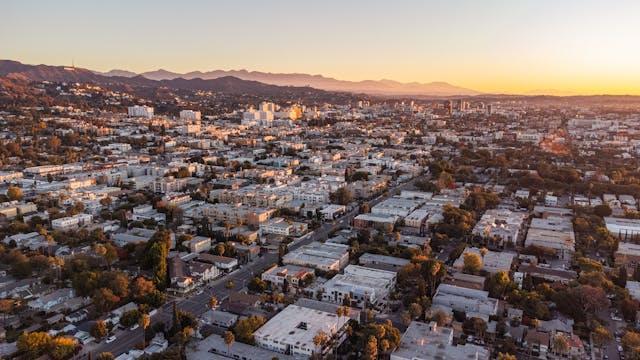
Starting March 1, workers in food service, education and childcare and emergency services will be eligible for vaccine in LA County
WHILE the coronavirus vaccine is currently only available to health care workers and residents over 65 years old in Los Angeles County, starting on March 1, vaccine eligibility will expand to include three major groups of essential workers.
Last week, LA County Public Health Director Dr. Barbara Ferrer announced that school teachers and child care workers, food service employees, and emergency service and first responders will be eligible for the vaccine.
The announcement comes as the fervor over reopening schools continues to mount across the state, with parents mobilizing to pressure school districts to reopen school campuses following several months of distance learning.
“We will be done with a big cycle of second doses by March 1, which is why we estimate that here in LA County we will be opening up for teachers, staff at schools, other educators and daycare workers,” Ferrer said.
The expansion of the vaccine — which Ferrer said will make about 1.5 million people eligible for the vaccine — falls just short of a year since the county was put on the first emergency lockdown.
Teachers’ union fires back
Those in the education and child care categories — teachers and support staff at K-12, pre-schools, private schools, and colleges and universities — are among the highest priorities. Nearly 40% of coronavirus vaccines available for school staff in LA County are expected to be allocated for workers of the LA Unified School District (LAUSD).
Forty percent is a relatively large share, but it still isn’t nearly enough to reopen K-12 schools by early April, district officials have said through statements.
A growing faction of parents are pressuring the district to reopen before the end of the school year; as previously reported in the Asian Journal, the campaign gained momentum earlier this month when the LA City Council threatened to sue the district to reopen by April.
Additionally, following pressure from California parents, the state is permitting elementary schools to reopen as soon as counties reach an average daily case rate of 25 positive cases per 100,000 residents. LA County is nearing that mark at 20 cases per 100,000 as of Friday, Feb. 26.
In response, United Teachers Los Angeles (UTLA), the district’s union that has successfully lobbied on behalf of teachers in the past, denounced the “pressure building to return to school” and has maintained that returning to classrooms “without proper health and safety protections” puts students, teachers and their families at risk.
Many UTLA members — like Filipino American elementary school teacher Karen Li — felt that the lawsuit threats to reopen campuses puts communities of color at a larger disadvantage.
“These elected officials who are pushing for a premature opening are not considering the fact that city, county and state have done very little to help prepare our most vulnerable communities, especially communities of color, for a safe return,” Li told the Asian Journal in a phone call on Thursday, Feb. 25.
Li mirrored the sentiments of the union’s leaders, saying that officials should be focused on getting everybody — not just teachers, but students and their families — vaccinated before schools reopen, and that is unlikely to happen before the target reopening in April.
According to a survey conducted by LA unified, 66% of parents (almost two-thirds) favor staying with remote learning, at least until the school year ends or when vaccines become available to every resident.
“Lots of families have lost their jobs and so many of us are emotionally and mentally struggling because of the impacts of this pandemic, which, we can recall, has been able to go on because of careless decision-making among our local and state officials,” Li argued.
“This pressure to return to school without everyone being vaccinated is so careless and goes along with the narrative that the state only cares about reopening the economy and gaining our conveniences of normal life over the actual safety of people.”
Li, however, did celebrate the announcement that educators will be able to vaccinate next week, saying that she has a plan to get her shots as soon as possible. But at the same time, she noted that “getting yourself vaccinated is only the first of many, many steps that [are] necessary to return to classrooms.”
UTLA is expected to vote on the issue of safe return to in-person instruction on March 1-5.
While many Americans have spent nearly one year working from home, Filipina American Jennifer Gonzales was among the many food service workers who saw their work schedules largely unchanged.
“Work [as a restaurant server] has more or less been the same — the only things that have changed are our capacity limits, more outdoor seating and face mask requirements. My schedule has been more or less the same,” Gonzales, who is also attending virtual classes as an animal science student at Cal State Los Angeles, told the Asian Journal.
Gonzales, who is a food server at BJ’s in Pasadena, said that she was reluctant to continue working through the pandemic, but, like so many working college students, she “didn’t have the option” to forgo steady income.
“Lots of people got to work from home, but once the [stay-at-home] orders were lifted and restaurants were opening up again, I kinda felt like I had no choice, and I’ve been working off and on since May,” she added.
In California, especially LA County, the year from March 2020 to the present has been marked by a rollercoaster of befuddling decisions made at the local, county and state level.
In the beginning, the Golden State was lauded as among the model states handling the pandemic responsibly — often being compared to states like New York which saw crisis-level rates of positive COVID-19 cases and deaths.
But when the state lifted its initial stay-at-home order around Memorial Day, the situation gradually got worse: inconsistently opening and reclosing certain businesses and public services, leading to more surges and falls of cases and deaths.
Gonzales said that she has had many coronavirus scares and is lucky that she hasn’t gotten sick, but “there were many times when it was so busy at work that it felt like I was, for sure, going to get sick.”
She plans to get vaccinated as soon as possible, but she knows this isn’t the end of the line.
“The hope is that we get to return to normal life once more people are vaccinated, but I know it’s important to still do the things we’ve been doing, like wearing face masks, limiting interactions with people and all that,” she said.
She said that she took her parents, whom she lives with, to get their vaccines in January at Dodger Stadium.
“I just hope that people will understand that. The vaccine is a big deal but it’s not an excuse to pretend like things are going to be okay after you get your second dose,” she added.
But the city of LA is experiencing a shortage of vaccines and was forced to shut down many vaccine super sites, including Dodger Stadium.
Many vaccine sites have been only administering second doses to deal with the shortage, but two new sites in LA County are offering first-dose appointments: a site at Cal State LA that is being co-managed by the Federal Emergency Management Agency (FEMA) and another side at Dignity Health Sports Park in Carson.
The pool of vaccination eligibility will expand even further on March 15, when California leadership ordered vaccines to be made available to anyone aged 16 or older who has a pre-existing health condition that makes them susceptible to COVID-19-related illnesses.






